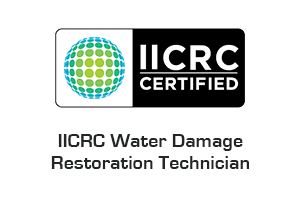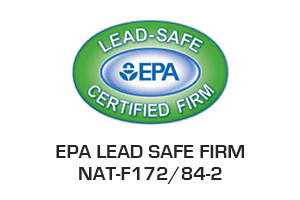Two Distinct Processes
A home inspection and a home appraiser are two distinct trades that serve different purposes in the context of real estate transactions. Here’s an overview of each:
Home Inspection Will Asses Various Aspects Of The Home
A home inspection is a thorough evaluation of the condition and functionality of a residential property. Typically a home inspection is performed by a professional home inspector who assesses various aspects of the home, including its structure, systems, and components. A home inspection aims to identify any existing or potential issues that could affect the property’s safety, habitability, or value.
During a house inspection, the inspector examines elements such as the foundation, roof, electrical and plumbing systems, HVAC (heating, ventilation, and air conditioning), appliances, insulation, windows, doors, and overall structural integrity. The inspector will provide a detailed report highlighting any concerns, defects, or areas needing repair or maintenance. Buyers often request a home inspection before finalizing a purchase to make informed decisions and negotiate repairs or price adjustments if necessary.

Home Appraisals Will Compare Similar Properties Recently Sold
An appraisal is an assessment of a property’s value conducted by a certified appraiser. An appraisal aims to determine the property’s fair market value based on its condition, location, size, comparable sales in the area, and other relevant factors. When a buyer obtains a mortgage loan, lenders typically require appraisals to ensure the property’s value supports the loan amount. During an appraisal, the appraiser will inspect the property to gather information about its characteristics and features. They will then compare it to similar properties recently sold in the area to determine its value. The final appraisal report provides an unbiased estimate of the property’s worth.
In summary, a home inspection focuses on the condition of a property, highlighting any existing or potential issues, while an appraisal determines the property’s market value. Both processes serve different purposes but are valuable in real estate transactions.
Will a Home Appraiser Request a Home Inspection?
In general, an appraiser does not typically request a home inspection. The primary responsibility of an appraiser is to assess the property’s market value based on factors such as location, size, condition, and comparable sales. However, it’s important to note that an appraiser may take note of any obvious issues or significant damage during their inspection, which could impact the property’s value. For example, suppose there are visible structural problems, a leaking roof, or major safety hazards. In that case, the appraiser may factor those issues into their appraisal report, potentially resulting in a lower valuation.
Home Inspectors and Appraisers Serve Different Purposes
While an appraiser may not explicitly request a home inspection, it is common for buyers to arrange a separate home inspection to identify any hidden or non-obvious problems that may exist. The findings from a home inspection can then be shared with the appraiser or considered during the negotiation process between the buyer and seller. Ultimately, a home inspection and an appraisal serve different purposes, but they can both provide valuable information to buyers and lenders during a real estate transaction.
What are the Roles of a Home Inspector?
A home inspector’s role is to thoroughly examine a residential property to assess its condition, functionality, and potential issues. Here are the key responsibilities and tasks typically performed by a home inspector:
Property Examination: Inspect Various property Components
To evaluate its overall condition, a home inspector will inspect various property components, including the interior and exterior. This includes examining the structure, foundation, walls, roof, windows, doors, and other visible elements.
Systems Evaluation: Inspect the Major Systems Within the Home
The inspector will assess the major systems within the residence, including electrical, plumbing, heating, ventilation, and air conditioning (HVAC). They will check for proper installation, functionality, and potential safety concerns.
Identification of Defects: They Highlight Areas That May Require Immediate Attention
The inspector will identify any defects, damages, or issues present in the property. This could include problems like water leaks, faulty wiring, plumbing issues, mold, pests, or safety hazards. They will also highlight areas that may require immediate attention or future maintenance.
Documentation: The Report Typically Includes Descriptions of Identified Issues
A detailed report is prepared by the home inspector, documenting their findings during the inspection. This report typically includes descriptions of identified issues, photographs, and recommendations for repairs or further evaluation by specialists if needed.
Communication: They May Offer Insights
The inspector may discuss their findings with the client, providing explanations, recommendations and answering any questions. They may offer insights into the severity of the issues and potential implications for the property.
Education: They May Offer Suggestions for Improvements
Home inspectors often provide clients with information and guidance regarding maintenance practices, energy efficiency, and general home safety. They may offer suggestions for improvements or provide resources for further information.
It’s important to note that a home inspector is only a specialist in some aspects of a property. If specific concerns are identified during the inspection, the inspector may recommend consulting with specialized professionals, such as electricians, plumbers, or structural engineers, for a more in-depth evaluation. Overall, the role of a home inspector is to provide an objective assessment of the property’s condition, assisting buyers in making informed decisions about the purchase and facilitating negotiations regarding repairs or pricing adjustments if necessary.
What are the Roles of a Home Appraiser?
A home appraiser’s role is to determine a property’s fair market value. Their assessment is based on various factors, such as the property’s characteristics, location, condition, and recent comparable sales in the area. Here are the key responsibilities and tasks typically performed by a home appraiser:
Property Inspection: They Visit the Property and Conduct a Physical Inspection
The appraiser visits the property and conducts a physical inspection. They evaluate the property’s size, layout, features, and overall condition. The purpose of the inspection is to gather relevant information to assess the property’s value accurately.
Market Analysis: Identify comparable properties recently sold in the area
The appraiser researches and analyzes the local real estate market to identify comparable properties recently sold in the area. They look for similar properties in terms of size, condition, location, and other relevant factors.
Comparable Sales Evaluation:
The appraiser compares the subject property to the identified comparable sales to determine its market value. They consider factors such as the sales price, location, size, condition, and any significant differences between the subject property and the comparables.
Data Analysis and Valuation: Estimate the Property’s Fair Market Value
Using the information gathered from the property inspection and the analysis of comparable sales, the appraiser applies valuation methods and approaches to estimate the property’s fair market value. They consider factors such as income, cost approach, and sales comparison approach.
Report Preparation: Includes Relevant Supporting Data, Photographs, and Market Analysis
The appraiser prepares a comprehensive appraisal report that includes details about the property, the valuation methods used, and the reasoning behind the final value determination. The report typically complies with industry standards and includes relevant supporting data, photographs, and market analysis.
Communication: Providing an Unbiased and Professional Opinion
The appraiser may communicate their findings and appraisal report to the client, such as the lender, buyer, or seller. They may explain and answer any questions related to the appraisal process or the property’s value.
The primary goal of a home appraiser is to provide an unbiased and professional opinion of the property’s market value. This information is essential for lenders, buyers, and sellers to make informed decisions regarding financing, negotiations, and pricing in real estate transactions. Delaware Contractor License #2016600660 Delaware Residential Home Inspector #H4-0010181


















